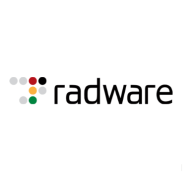


Azure DDoS Protection and Radware DDoS Protection Service are both designed to prevent distributed denial of service attacks. Azure appears to have an edge in pricing and support, whereas Radware stands out for its robust features.
Features: Azure DDoS Protection includes integration with Azure services, automated mitigation, and minimal manual intervention. Radware DDoS Protection Service offers advanced behavioral analysis, detailed attack analytics, and tailored security solutions adaptable to different networks.
Room for Improvement: Azure can improve in granular control of features, flexibility for non-Azure environments, and real-time analytics for DDoS attacks. Radware requires enhancements in initial setup complexity, user interface intuitiveness, and costs associated with its advanced functionalities.
Ease of Deployment and Customer Service: Azure DDoS Protection provides straightforward deployment due to its integration with Azure services. Radware offers flexible deployment options and comprehensive support, which compensates for a potentially more complex initial setup.
Pricing and ROI: Azure DDoS Protection is generally more cost-effective, especially for existing Azure users. Radware has a higher cost but is viewed as providing a better return on investment due to its customizable protection features.
WordPress security can be tricky, and that's where Cloudflare can be absolutely helpful for small businesses.
We have had ROI with the tool's use since it never gave us downtime and made us lose millions.
For the small project I was working on, using the basic tier provided a huge improvement at zero cost.
This would help us address issues promptly, especially during unforeseen events like DDoS attacks.
We'd like a dedicated account manager.
You can get a support engineer with the best qualifications.
The response time is very slow, especially when multiple teams are required to collaborate on a case.
Providing assistance almost instantly when needed.
I would rate the solution's scalability a ten out of ten since I didn't encounter any issues with it.
I rate its scalability a ten out of ten because I had no issues with it.
I rate the scalability a ten out of ten.
Scalability is well-supported by Radware.
For DDoS protection, I would not recommend Cloudflare.
I rate the solution’s stability an eight out of ten.
The service is very stable with no impacts during high-traffic periods.
There's a need for improvement in areas like AI-based DDoS attacks and Layer 7 WAF features.
Despite these challenges, overall, Cloudflare remains the preferred solution compared to Azure, AWS CloudFront, and Google Cloud Armor.
the ability to integrate with the on-site active directory instead of just AD through Azure AD
It would be beneficial to have more detailed insights available directly on the dashboard.
I have noticed some false positives with the Web Application Firewall yet not with DDoS Protection.
I suggest adding more services and additional services, which would be beneficial.
I suggest improvements to the user interface to make it easier to use and to find the necessary data for analysis.
That's where Cloudflare shines for smaller businesses – it's ten times cheaper than Akamai.
I find it to be cheap.
It's cost-effective, but I think they should have a custom pricing model for enterprise customers based on the features you use.
If used with Front Door or Web Application Firewall, DDoS Protection is included without additional cost.
The pricing is somewhat costly, usually around $3,000 to $4,000 per month.
Compared to competitors, it is good.
Radware pricing is on the high end, suitable more for larger organizations.
Our scenario consisted of two web servers in different allocations to control access demands, and the load balancer did the job as expected, bringing security and stability to access points.
For me, the valuable feature is DDoS protection.
The most valuable features of the solution are performance and security.
The security architecture with Azure DDoS Protection is critical for safeguarding our financial organization's infrastructure.
The ability to do research and development quickly without waiting for infrastructure is a plus.
The integration of various tools with Azure Firewall, like DDoS Protection, Web Application Firewall, and Azure Front Door, is quite effective.
The support from Radware is also exceptional, as they are always willing to jump on a call to help solve issues and improve our network design.



Cloudflare is a highly-regarded Content Delivery Network (CDN) and a Distributed Denial-of-Service (DDoS) protection solution. The robust global connectivity cloud platform that is Cloudflare ensures users are able to connect to the Internet quickly, securely, and reliably. Cloudflare is one of the world's largest networks in the marketplace today. Using Cloudflare, businesses, educational entities, NGOs, vloggers, bloggers, and anyone else with an internet presence can experience more secure, faster websites and applications.
Currently, there are millions of Internet locations on Cloudflare, and the Cloudflare network
continues to grow every day by the thousands. The solution is able to fulfill the requests for
millions of websites seamlessly and serves on average 45 million HTTP requests per second.
Cloudflare has safe, secure data centers in close to 300 cities worldwide to ensure every
client request is filled as quickly as possible. It is Cloudflare’s edge network that makes this
possible by keeping content and other services as close to each client as possible, so the
information requests are always only seconds away.
Many organizations that work in democracy, civil society, human rights, or the arts are able to
access Cloudflare's highest levels of protection for free via Project Galileo. Additionally, official
election websites can be secured from hacking and fraud through Cloudflare’s Project
Athenian, also at no additional cost.
Cloudflare can also help organizations of all sizes develop a robust zero-trust strategy to
ensure the highest levels of productivity and profitability. Employees, stakeholders, and end users have a greater level of satisfaction and overall improved user experience, which can, in
turn, result in higher revenues and overall ROI. Zero-trust and BYOD (bring your own device)
access ensure end users and employees always have the best resources and technology
available to them at all times.
Cloudflare benefits
Cloudflare has many benefits. Some of its most valuable benefits include:
- Faster load times
- Robust DNS security
- Intuitive cloud Web Application Firewall (WAF)
- Free universal SSL
- Image enhancement
- Automatic browser caching
- Next-generation cloud load balancer
- Accelerated Mobile Pages (AMP)
- Rate limiting
- Minification
- Zero-trust capabilities
- Cost-effective
- Reduced carbon footprint
Reviews from real users
“Many websites require an SSL certificate because they sell stuff and want SSL. Cloudflare
comes with an SSL certificate built in. It's automatic. You sign yourself up for Cloudflare, and
an SSL certificate automatically protects your website. If you have a connection between your
website and your host, the server, Cloudflare, and the host, you don't necessarily need a
certificate.” Spencer M., Owner at Tech Exchange
“What I like best about Cloudflare is that my company can use it to trace and manage
applications and monitor traffic. The solution tells you if there's a spike in traffic. Cloudflare
also sends you a link to check your equipment and deployment and track it through peering,
so it's a valuable tool.” Daniel P., Network Engineer at Ufinet
“The most valuable feature of Cloudflare is the GUI. You are able to control the solution very
well through the interface. There is a lot of functionality that is embedded in the service.” PeerSpot user, Competence Center Manager at a tech services company
Azure DDoS Protection, combined with application design best practices, provides defense against DDoS attacks.
To learn more about our solution, ask questions, and share feedback, join our Microsoft Security, Compliance and Identity Community.
Radware DDoS Protection Service provides robust defense against distributed denial of service attacks with comprehensive Layer 3, 4, and 7 protection, ensuring secure infrastructure for telecom companies, ISPs, and financial institutions.
With rapid signature updates and SSL-based attack mitigation, Radware DDoS Protection Service delivers extensive protection. It integrates easily with platforms and features a user-friendly interface with real-time monitoring and reporting. The service includes a behavior engine for anomaly detection and offers flexible deployment options, significantly reducing false positives and minimizing downtime.
What are the key features of Radware DDoS Protection Service?Industries like telecommunications, data centers, ISPs, and banks deploy Radware DDoS Protection Service to defend critical infrastructure, such as cloud networks and internet-facing assets, safeguarding web and mail services. It offers advanced threat mitigation and scalability to handle fast-changing attack strategies effectively.
We monitor all Distributed Denial-of-Service (DDoS) Protection reviews to prevent fraudulent reviews and keep review quality high. We do not post reviews by company employees or direct competitors. We validate each review for authenticity via cross-reference with LinkedIn, and personal follow-up with the reviewer when necessary.